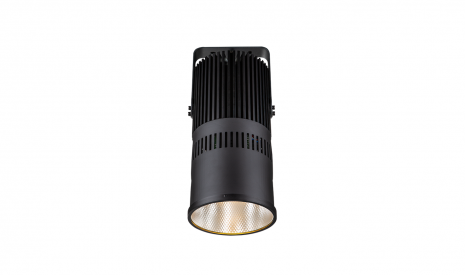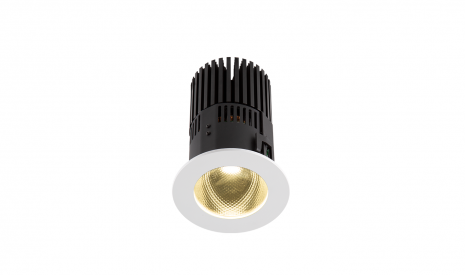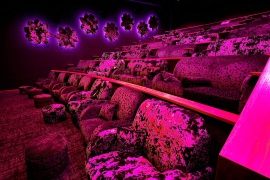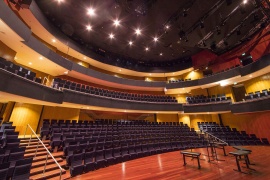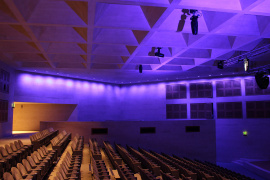The 3,723-seat Grand Amphitheatre at Paris Convention Centre, a premium multi-space venue staging a diverse range of national and international events and entertainment, has recently converted its auditorium lighting to Anolis LED with the installation of nearly 400 x Anolis Ambiane range lighting fixtures.
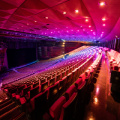
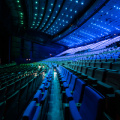
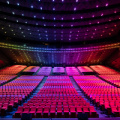
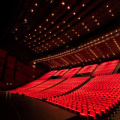
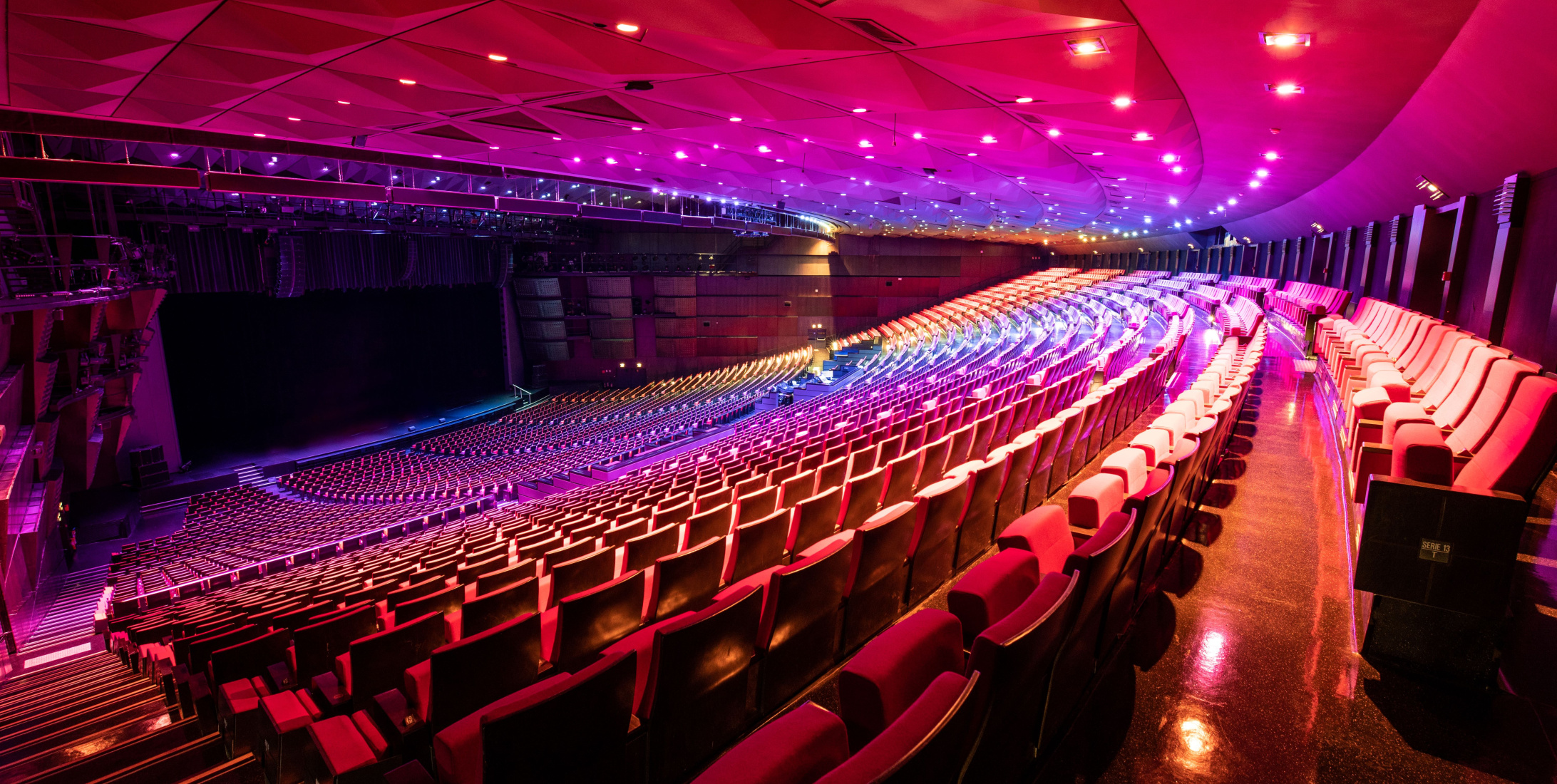
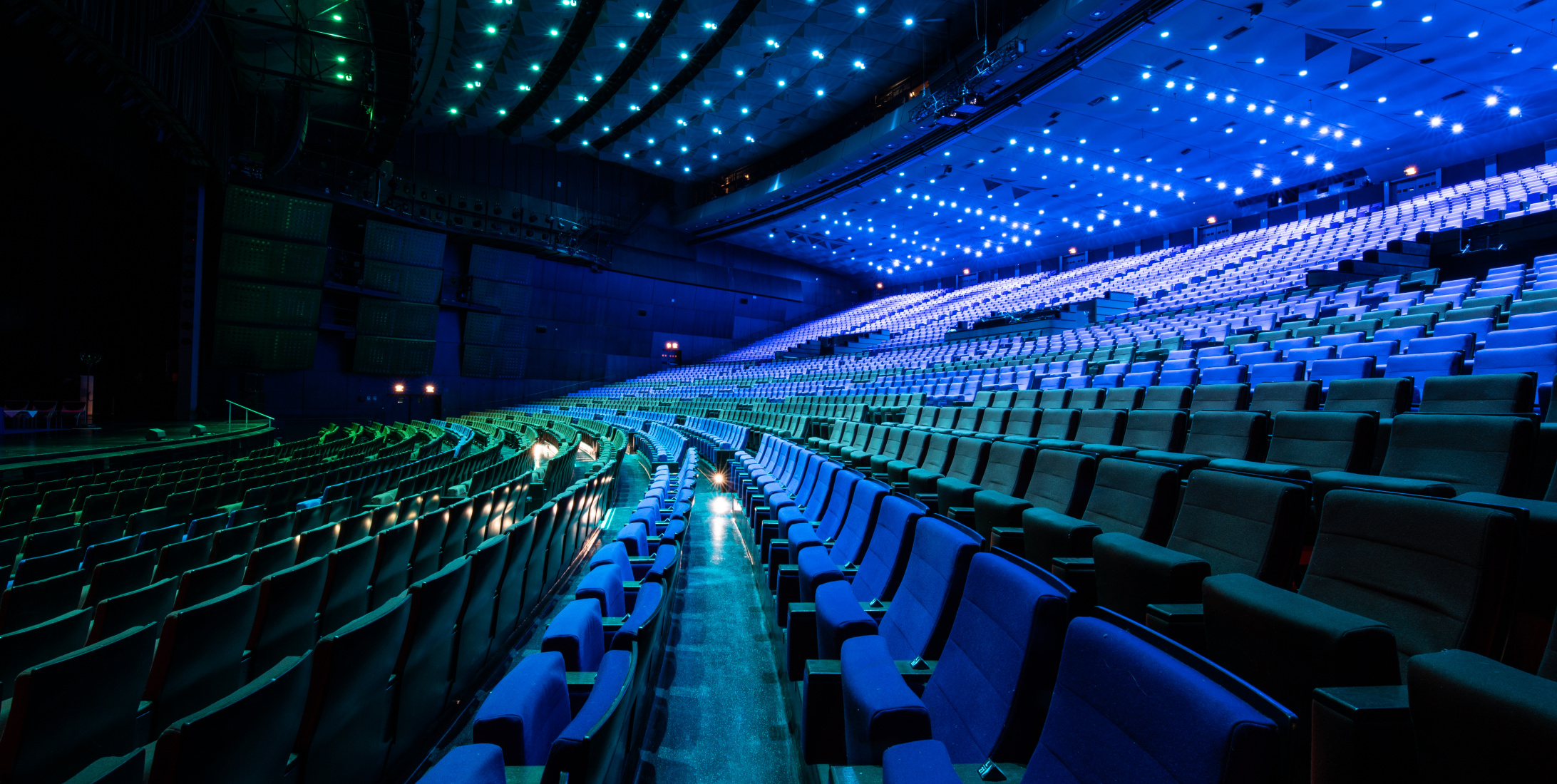
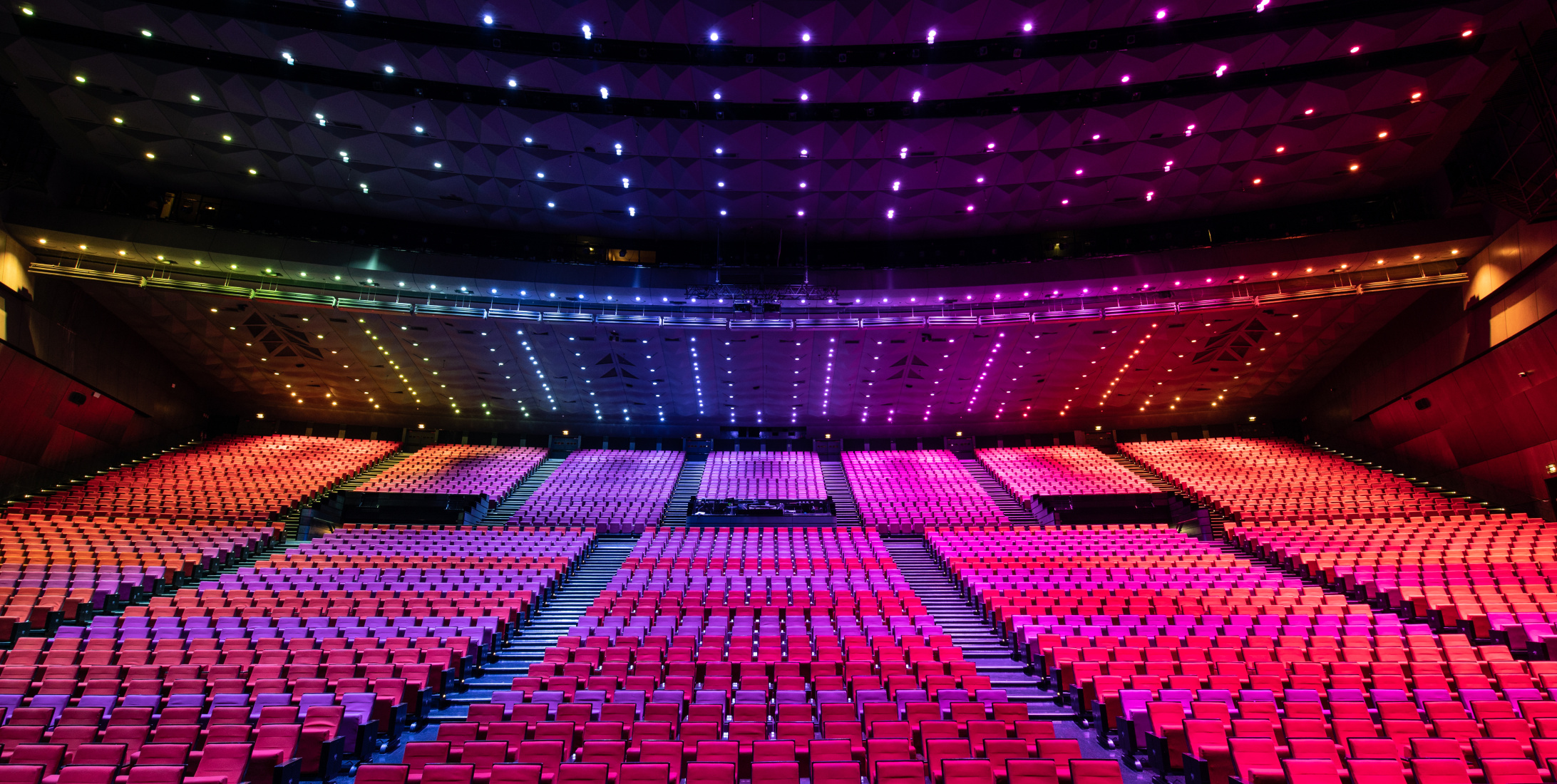
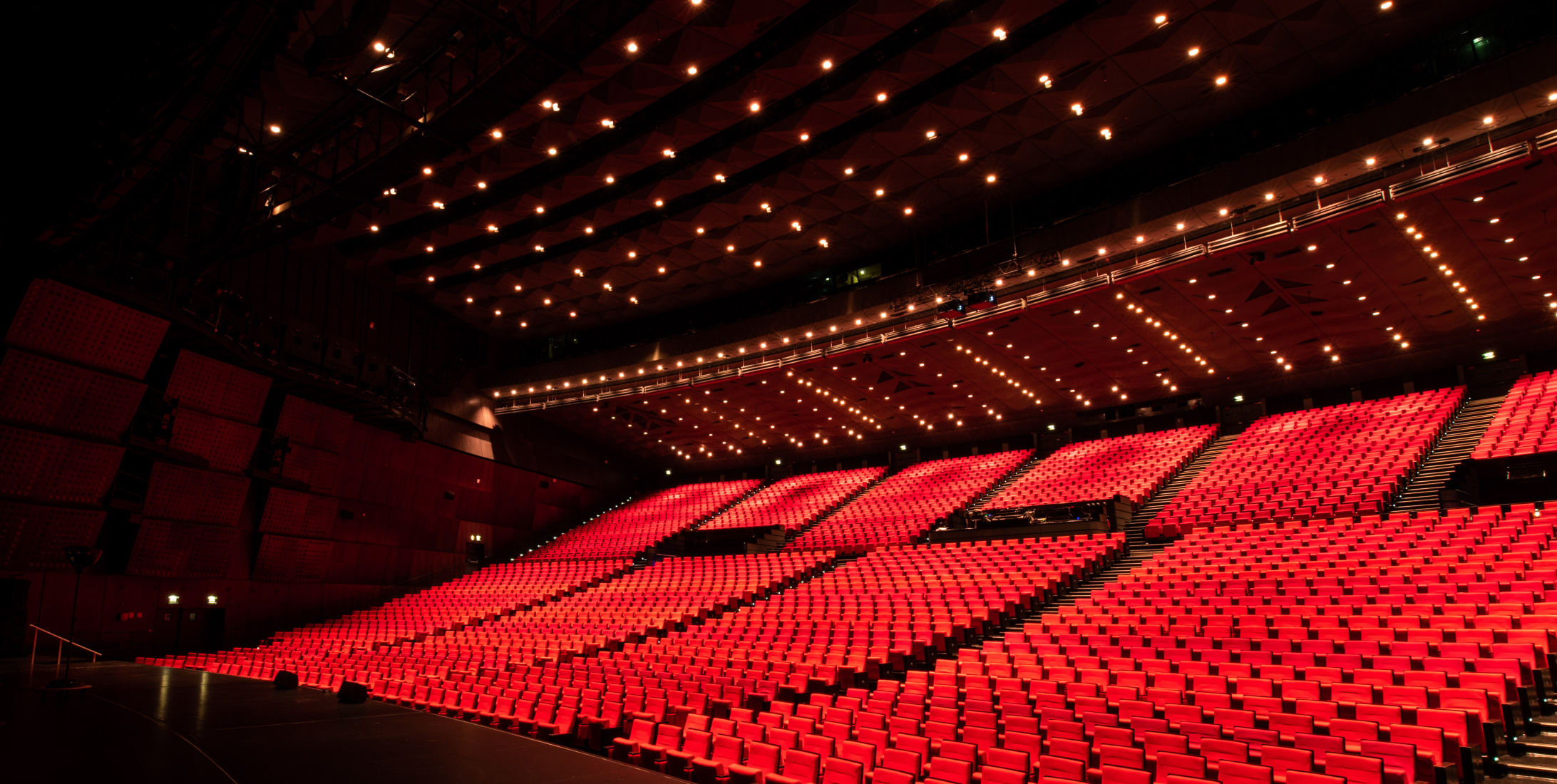
Project Details
These are dramatically improving its energy efficiency and reducing power consumption for the lighting … by 300%!
The previous PAR 56 500W halogen lighting fixtures had been in residence since the venue’s inauguration in 1974, and this new installation is part of a renovation process initially launched in 2020. It has been co-ordinated by venue operator Viparis in conjunction with French lighting design agency, Lyum.
Installed by Eiffage Énergie Systèmes, the electricity saving in the Grand Amphitheatre is very much welcomed, as the house lighting often runs for long periods during event setups, rehearsals and breakdowns that are a routine part of a busy schedule hosting congresses, conventions, and shows.
The Ambiane fixtures are fitted with assorted beam angles and other accessories like louvres for precision shaping of the output, tailoring it exactly to the room requirements.
The project management team included Viparis DET’s supervisor Laurent Villechenoux who worked closely with the venue’s lighting manager Christophe “Zippo” Hipeau, together with Lyum lighting designer / project manager Sylvain Bigot; lighting programmer François Guillet from Lumières Utiles and the team from Eiffage Énergie Systèmes.
Viparis had been involved in lighting the space for some time, and the last major upgrade in 2014 saw the room lighting rewired to enable separate seat rows illumination, with the goal of lighting the chairs and aisles independently for better ambiance control.
However, with the phasing out of halogen lamps, it becomes increasingly difficult to source the PAR 56 500W bulbs that were used in the auditorium.
Apart from that, the switching to LED had other goals like reinforcing the venue’s CSR (corporate social responsibility); improving audience experience with the use of colour and unlocking the potential for the room to be more interactive – with a system that could be hooked into the production lighting of shows onstage.
The uneven ceiling topography meant heights ranged from 3 to 18 metres. Another requirement was to find light sources with the exact same diameters as the old PAR 56 and PAR 30s to avoid having to make any new holes for rigging.
Fundamental to recreating the desired ambience in the space was choosing a mix of LEDs to perfectly reproduce the halogen style.
Minimum noise pollution from the lighting fixtures was another consideration, as was an ROI of 7 years or less.
Lyum and the venue team led by Zippo looked at products from several manufacturers and conducted extensive demonstrations on site.
One of the first tests was to see if the management could detect the potential new lights (from the old) by identifying a difference in output or look, and the Ambianes were the only ones indistinguishable from the halogens, which elegantly and effortlessly ticked the continuity box.
“This was thanks to the very subtle RGBW colour blending which enables the red, green, blue, and warm white LEDs to perfectly cover all the hues,” explained Zippo.
All the comparative lighting studies were conducted by Lyum’s Tours office. Lighting project manager Sylvain Bigot created a 3D model of the Grand Amphitheatre using DIALux lighting design software to emulate how the ceiling lighting would look on the audience with the Ambianes rigged around 2 metres apart.
The specific 396 x Anolis Ambiane luminaires were chosen according to the available ceiling heights across the auditorium space.
The stalls’ seating area is covered by 92 x 150W Ambiane XP56s with 20° recessed lenses. The aisles between the stage and the first level are lit with 32 x 150W Ambiane XP56 fixtures with recessed 20° lenses and 5° louvres; while the aisles on level 1 from house right to house left have 46 x 75W Ambiane HP111s with recessed, 60° lenses.
One hundred and twelve 150W Ambiane XP56s with recessed 45° lenses deal with the seats above the first level, and for the aisles between the first and second levels, 72 x 150W Ambiane XP56s with recessed 20°s are installed.
The back rows of seats are lit with 42 x 75W Ambiane HP111s with 60° lenses.
Apart from the quality of the Anolis light output, the manufacturer’s ability to provide a complete customised solution with so many different fixtures was another huge benefit.
Each luminaire is a one-for-one replacement of the existing 110 V PARs.
The Ambiane XP56s are run via remote power supplies with the projector slung into the auditorium’s metal ceiling and there is a total of 308 Ambiane XP56s (150W) plus 88 x 75W Ambiane HP111s in the ceiling.
“Having the Anolis luminaires meant we could choose the exact colour we wanted, and it was very precise!' noted lighting designer Sylvain Bigot. “Furthermore, they offered smooth and completely linear dimming from 0 to 5% and even at 2%, you see a little glow. To be able to achieve that with an LED source, it’s just beautiful!”
Zippo adds that the inbuilt macros allow a 2700 K, a 3200 K and a progressive CTO, “so you can really recover true halogen-like hues and texturing,” and he notes that the minus green can be added or removed as needed for filmed / streamed events.
Lyum has designed and programmed about fifteen default lighting scenarios for the auditorium which are easily accessible from a Pharos TPC touch tablet controller.
“I am quite amazed to see the effectiveness of the exact shade calibration across all the fixtures. It’s very pleasant and satisfying!' commented François Guillet.
A Pharos LPCX system – comprising 10 DMX universes – manages the room's lighting running on the venue’s existing fibre network with 5,120 DMX channels dedicated to the auditorium's ceiling lighting.
This can also be hooked into the production lighting for visiting events.
Photo Credits: La Chouette Photo, courtesy of the Paris Convention Centre
The previous PAR 56 500W halogen lighting fixtures had been in residence since the venue’s inauguration in 1974, and this new installation is part of a renovation process initially launched in 2020. It has been co-ordinated by venue operator Viparis in conjunction with French lighting design agency, Lyum.
Installed by Eiffage Énergie Systèmes, the electricity saving in the Grand Amphitheatre is very much welcomed, as the house lighting often runs for long periods during event setups, rehearsals and breakdowns that are a routine part of a busy schedule hosting congresses, conventions, and shows.
The Ambiane fixtures are fitted with assorted beam angles and other accessories like louvres for precision shaping of the output, tailoring it exactly to the room requirements.
The project management team included Viparis DET’s supervisor Laurent Villechenoux who worked closely with the venue’s lighting manager Christophe “Zippo” Hipeau, together with Lyum lighting designer / project manager Sylvain Bigot; lighting programmer François Guillet from Lumières Utiles and the team from Eiffage Énergie Systèmes.
Viparis had been involved in lighting the space for some time, and the last major upgrade in 2014 saw the room lighting rewired to enable separate seat rows illumination, with the goal of lighting the chairs and aisles independently for better ambiance control.
However, with the phasing out of halogen lamps, it becomes increasingly difficult to source the PAR 56 500W bulbs that were used in the auditorium.
Apart from that, the switching to LED had other goals like reinforcing the venue’s CSR (corporate social responsibility); improving audience experience with the use of colour and unlocking the potential for the room to be more interactive – with a system that could be hooked into the production lighting of shows onstage.
The uneven ceiling topography meant heights ranged from 3 to 18 metres. Another requirement was to find light sources with the exact same diameters as the old PAR 56 and PAR 30s to avoid having to make any new holes for rigging.
Fundamental to recreating the desired ambience in the space was choosing a mix of LEDs to perfectly reproduce the halogen style.
Minimum noise pollution from the lighting fixtures was another consideration, as was an ROI of 7 years or less.
Lyum and the venue team led by Zippo looked at products from several manufacturers and conducted extensive demonstrations on site.
One of the first tests was to see if the management could detect the potential new lights (from the old) by identifying a difference in output or look, and the Ambianes were the only ones indistinguishable from the halogens, which elegantly and effortlessly ticked the continuity box.
“This was thanks to the very subtle RGBW colour blending which enables the red, green, blue, and warm white LEDs to perfectly cover all the hues,” explained Zippo.
All the comparative lighting studies were conducted by Lyum’s Tours office. Lighting project manager Sylvain Bigot created a 3D model of the Grand Amphitheatre using DIALux lighting design software to emulate how the ceiling lighting would look on the audience with the Ambianes rigged around 2 metres apart.
The specific 396 x Anolis Ambiane luminaires were chosen according to the available ceiling heights across the auditorium space.
The stalls’ seating area is covered by 92 x 150W Ambiane XP56s with 20° recessed lenses. The aisles between the stage and the first level are lit with 32 x 150W Ambiane XP56 fixtures with recessed 20° lenses and 5° louvres; while the aisles on level 1 from house right to house left have 46 x 75W Ambiane HP111s with recessed, 60° lenses.
One hundred and twelve 150W Ambiane XP56s with recessed 45° lenses deal with the seats above the first level, and for the aisles between the first and second levels, 72 x 150W Ambiane XP56s with recessed 20°s are installed.
The back rows of seats are lit with 42 x 75W Ambiane HP111s with 60° lenses.
Apart from the quality of the Anolis light output, the manufacturer’s ability to provide a complete customised solution with so many different fixtures was another huge benefit.
Each luminaire is a one-for-one replacement of the existing 110 V PARs.
The Ambiane XP56s are run via remote power supplies with the projector slung into the auditorium’s metal ceiling and there is a total of 308 Ambiane XP56s (150W) plus 88 x 75W Ambiane HP111s in the ceiling.
“Having the Anolis luminaires meant we could choose the exact colour we wanted, and it was very precise!' noted lighting designer Sylvain Bigot. “Furthermore, they offered smooth and completely linear dimming from 0 to 5% and even at 2%, you see a little glow. To be able to achieve that with an LED source, it’s just beautiful!”
Zippo adds that the inbuilt macros allow a 2700 K, a 3200 K and a progressive CTO, “so you can really recover true halogen-like hues and texturing,” and he notes that the minus green can be added or removed as needed for filmed / streamed events.
Lyum has designed and programmed about fifteen default lighting scenarios for the auditorium which are easily accessible from a Pharos TPC touch tablet controller.
“I am quite amazed to see the effectiveness of the exact shade calibration across all the fixtures. It’s very pleasant and satisfying!' commented François Guillet.
A Pharos LPCX system – comprising 10 DMX universes – manages the room's lighting running on the venue’s existing fibre network with 5,120 DMX channels dedicated to the auditorium's ceiling lighting.
This can also be hooked into the production lighting for visiting events.
Photo Credits: La Chouette Photo, courtesy of the Paris Convention Centre
